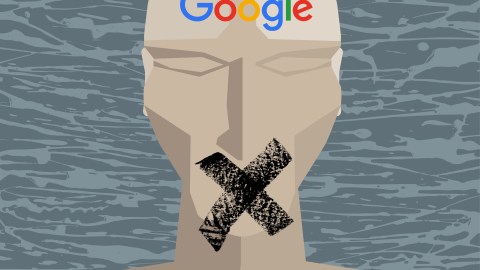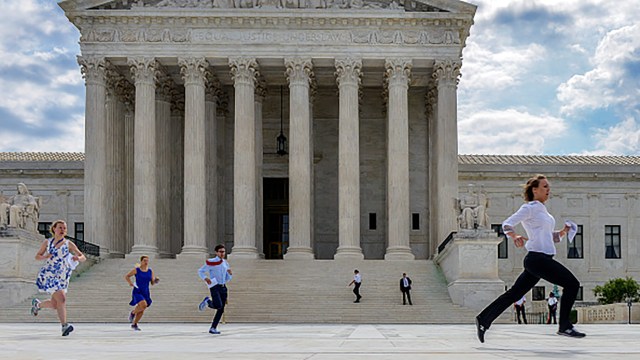Here’s how Google controls whether that sex tape or drunken escapade ruins your career

There are a ton of things I’d like to forget. That high school yearbook photo of me in the bolo tie. My Sally Jesse Raphael eyeglasses that my mom apparently thought looked good on me. That one time I visited Tijuana, Mexico, and saw a donkey spray-painted to look like a zebra. Lots of stuff. But, here’s the thing. To forget them, to not have them as a part of my personal history, would change who I am.
Yet if the picture of me in the bolo tie makes it to the web, what can I do? How do I remove things that are a part of my past that I’d like to forget but can’t because there is a record of them online somewhere? Things I don’t want anyone to know about. Like that picture of me in the bolo tie, or in the case that spurred the whole “right to be forgotten” movement, an auction notice for a repossessed home.
In 2010, a Spanish citizen filed a complaint with the Spanish national Data Protection Agency against a Spanish newspaper and Google. His complaint alleged that since an auction notice for his repossessed house found its way online and was then indexed by Google, his privacy rights had been violated as the proceedings concerning the issue and him had been fully resolved for years and therefore were irrelevant. As such, Google should remove his information so that it no longer appeared in any search results.
If you want to keep a secret, you must also hide it from yourself. — George Orwell, 1984
Think of it this way. Let’s say I take a picture of you with your consent and post it online. The picture shows you in an embarrassing situation. Later on, you decide you want me to take it down, but I won’t. So you petition Google to remove the link so that if someone were to search your name, the link to the picture would never show up. That’s the right to be forgotten. It doesn’t remove the picture from where it’s stored; it just removes the link to the picture. What makes this really complex is that the Court of Justice of the European Union ruled that:
“This applies where the information is inaccurate, inadequate, irrelevant, or excessive for the purposes of the data processing (para 93 of the ruling). The court found that in this particular case the interference with a person’s right to data protection could not be justified merely by the economic interest of the search engine. At the same time, the Court explicitly clarified that the right to be forgotten is not absolute but will always need to be balanced against other fundamental rights, such as the freedom of expression and of the media (para 85 of the ruling). A case-by-case assessment is needed considering the type of information in question, its sensitivity for the individual’s private life, and the interest of the public in having access to that information. The role the person requesting the deletion plays in public life might also be relevant.”[1]
A couple of key points here. First, the manner in which “inaccurate, inadequate, irrelevant, or excessive” are defined, determines what gets unlinked and what doesn’t. I can imagine years of court proceedings settling these definitional issues. Second, the right is not absolute. That is, it can be restricted. By whom and for how long seem to be up for discussion at the moment. And third — and certainly most important in my view — Google will perform the assessment required by the ruling to evaluate “the deletion request on a case-by-case basis and to apply the criteria mentioned in EU law and the European Court’s judgment. These criteria relate to the accuracy, adequacy, relevance — including time passed — and proportionality of the links, in relation to the purposes of the data processing.”
What that means is Google has the responsibility for determining if the deletion request is valid and should be honored. If Google resolves that the link-deletion request is not in the best interest of the public’s access to information, it can deny the request. For example, if you have a public enough persona and Google determines that picture of you that I took is in the public interest to see, it will keep the link in its search results.
Out of over 325,000 requests to remove links, Google has evaluated 1.1 million URLs and removed almost 42 percent of them from its index. Facebook represents the largest number of links removed from any particular site.
Some examples of things Google has adjudicated:
- A couple who was accused of business fraud asked Google to remove articles about the crime. Google did not remove the pages from search results.
- A priest convicted for possession of child sexual abuse imagery asked Google to remove articles reporting on his sentence and banishment from the church. Google did not remove the pages from search results.
- A high-ranking public official asked Google to remove recent articles discussing a decades-old criminal conviction. Google did not remove the articles from search results.
- A teacher convicted for a minor crime over 10 years ago asked Google to remove an article about the conviction. Google has removed the pages from search results for the individual’s name.
- A victim of rape asked Google to remove a link to a newspaper article about the crime. Google has removed the page from search results for the individual’s name.
Why does Google — or any private entity — get to make this decision? Who comprises Google’s Removals Team? Are they qualified to make these decisions?
By ceding the link-removal decision to Google, the Court of Justice of European Union blurs the line between what a court of law should decide and what a private corporation should be allowed to do. While I’m not opposed to being forgotten, I’m not sure I’m comfortable with some group of people at Google making that determination.
[1] Emphasis not mine.





